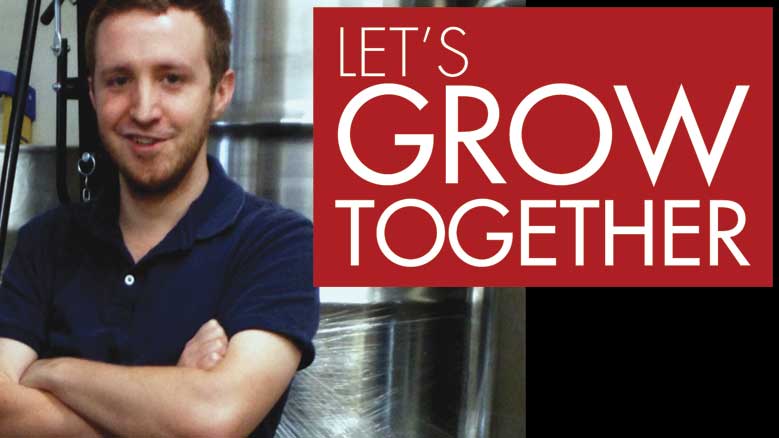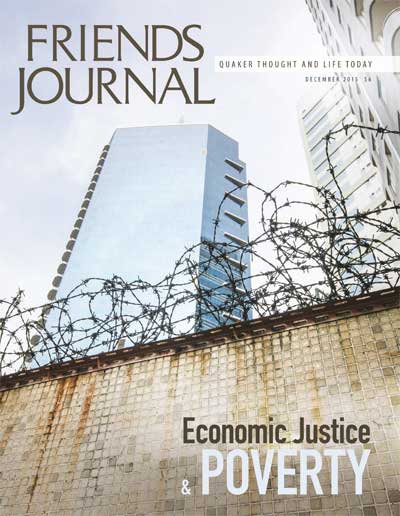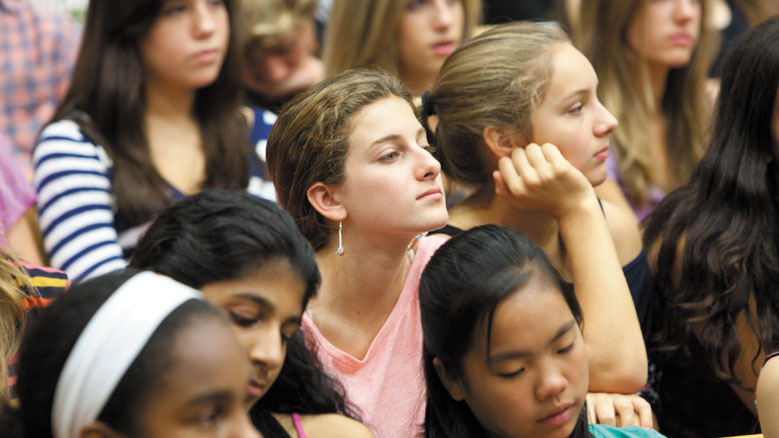 Jacob Nelson, 27, is co-founder of Phryg Coffee Co. The San Diego-based company, which makes cold brew coffees and teas, brought its first products to market this fall. Its name is an allusion to the Phrygian cap, an ancient symbol of enlightenment, and to the phonetic “fridge.” Jacob started going regularly to Quaker meeting as a student, first at George School, a Quaker boarding school in Newtown, Pennsylvania, where he went for one year before graduating high school early in suburban Chicago, then in college at Rice University in Houston, Texas. He now attends San Diego (Calif.) Meeting. He also has started taking classes toward a master’s degree through Earlham School of Religion.
Jacob Nelson, 27, is co-founder of Phryg Coffee Co. The San Diego-based company, which makes cold brew coffees and teas, brought its first products to market this fall. Its name is an allusion to the Phrygian cap, an ancient symbol of enlightenment, and to the phonetic “fridge.” Jacob started going regularly to Quaker meeting as a student, first at George School, a Quaker boarding school in Newtown, Pennsylvania, where he went for one year before graduating high school early in suburban Chicago, then in college at Rice University in Houston, Texas. He now attends San Diego (Calif.) Meeting. He also has started taking classes toward a master’s degree through Earlham School of Religion.
Jon Berry: How did you come to Quakerism?
My father was a birthright Friend (he passed away two years ago from a heart attack). We went to meeting some when I was growing up, but I really didn’t find Quakerism until later, in college, when I started to go to Live Oak Meeting in Houston. Live Oak has a beautiful meetinghouse. It’s famous for its Skyspace [by Quaker artist James Turrell]. At sunset, the meetinghouse is bathed in an ambient purple light. The meetinghouse literally glows with color. It’s mesmerizing. They have an evening meeting for worship. It’s perfect for millennials who don’t want to wake up on Sunday mornings. I wish more Quaker meetings had evening meeting for worship.
I started going with a Quaker friend from Rice. She stopped, but I kept going. I was really drawn to the people there. It was an amazing tapestry of experiences. That’s been true of all the meetings I’ve been to. The communities are incredible.
Jon: How do you see yourself spiritually?
I’d say I’m the exception for Quakers my age. At most meetings I’ve been to, people identify as Quaker before Christian. I identify as Christian before Quaker. I found Christianity through philosophy. I was a philosophy major at Rice. I was drawn to the early modern philosophers who dealt with facets of Christianity through metaphysics, like how to reconcile free will with determinism, or the problem of evil.
I once asked a professor if deconstructing the brain—having more knowledge of how it works as a physical organ—had made him more atheist. He said that it did initially. He said his experience mirrored that of other professors. They felt that understanding the mechanics of the brain demystified it. But they began to realize the brain is so complex and ultimately so far outside our comprehension that at a certain point it made them more spiritual.
Jon: You’re starting a business. Do you see a line between your beliefs and your work?
As an entrepreneur there’s a real risk your business will fail. I find comfort that, if I fail, I can thank God for humbling me. The fundamental unit of Christianity, in a sense, is humility. On the other hand, if I succeed, I can thank God for the opportunity to do all this. The most influential idea from Quakerism for my business, I think, is the question, is there love in what I’m doing?
I’ve been looking at how we need to price our products to support ourselves. Where it comes out is that we’ll be priced comparable to Starbucks. I’ve been asking myself: Is that the Christian way to sell coffee? Would the most Christian way to drink coffee be to buy your coffee at 7-Eleven, instead of a more expensive place, then give the money you save to a homeless person? But I also think about a discussion we had this summer at Earlham about an essay a classmate wrote about church coffee. The consensus was that church coffee just isn’t very good. Churches are austere at the expense of joy. What I’m hoping, with my coffee, is to create joy.
I love iced coffee and iced tea. It started when I was in high school and read The Motorcycle Diaries. The book talks about drinking mate, a caffeinated drink popular in South America, so I tried making some. It was great. I learned to steep teas at different temperatures. I started brewing green teas and white teas. I became known among my friends for making tea.
The coffees we’re using in Phryg are roasted by Father Michael, a Greek Orthodox priest from Washington State. I met him through a friend from Rice. He’s a fascinating guy. He’s a joy to work with. He loves his work, and has an amazing work ethic. And he makes the best latte I’ve ever had.
Jon: Why did you decide to start seminary?
I’d say I feel called to it. Identifying as Christian before Quaker has meant some work to discern and reconcile differences between them. I’d like to firm up my understanding of scripture and ground myself more theologically. I found out about Earlham School of Religion from a person I was adding to the list for our meeting; I’m the meeting’s Google Group administrator. I was happy to find they have a low-residency seminary program so I could grow my faith and be part of a community while continuing my job.
Jon: Do you have thoughts about where this could lead you?
We have a lot of visitors to our meeting. Some are people who are visiting this area; others are people who want to go to church, but have been put off by their experience of church. They like that Quakerism seems more accepting and welcomes people with questions. We have people in our meeting who are very good at explaining Quakerism without being dogmatic. I’d love to be able to talk about the historical context of Quakerism. Many people don’t realize how radical our history is: that back in the seventeenth century we had women ministers and that social activism has been part of our history for hundreds of years. I’m particularly interested in ESR’s emphasis in writing as ministry. I’d love, through the program, to find words that can reach other millennials.
Jon: It’s so interesting to talk about religion in a generational context.
Being religious is not part of the mainstream for millennials. The plurality of millennials are “nones,” people who have spiritual inclination but don’t identify with a particular denomination. I think it’s becoming fun, in that context, to identify with Christianity—and with Judaism, Islam, and other denominations. Being religious is rebellious again. I feel Quakerism is well-positioned to be welcoming to millennials. When my friends come to Quaker meeting, they’re surprised by the experience. They say, “Wow, that’s not what I expected out of church.” Partly it’s the form of worship, but it’s also the beliefs. We can accommodate people who have spiritual leanings but are resistant to having views imposed on them. Millennials resist doctrine. They don’t identify with political parties or ideology, and it’s reflected in their spirituality as well.
Jon: What’s meeting for worship like for you?
It’s quiet. It’s almost embarrassing to say, but I think it’s the only time my phone is off for more than an hour. Our meeting has a good balance. Some of the most profound things I’ve heard in life have come out of meeting for worship. But the most recent Sunday was totally quiet. A couple people in our meeting are very acquainted with Zen practices. From them I’ve learned to keep my feet on the ground. I try to keep my palms open, my posture upright, and focus on my breathing. I try to respect thoughts when they come up, but not engage in them, and to be aware of other people in the room and attentive to what they say.
I’ve tried meditating on my own. There’s something very powerful about sitting in silence with 20 to 30 other people that can’t be captured sitting in silence by myself. I’ve tried going to other churches. When I first moved to San Diego I tried going to Saturday night services at some. It seemed a lot of people were excited by the rock music. But when the preacher started the sermon, people started bringing out their phones. That’s the inverse of what you want. That’s one facet of Quakerism that’s appealing. You tune out at your own expense.





Comments on Friendsjournal.org may be used in the Forum of the print magazine and may be edited for length and clarity.